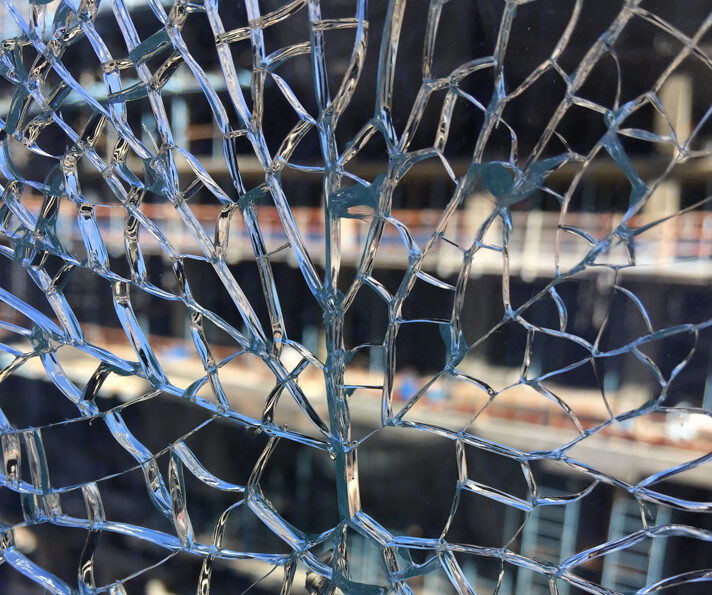Fully Tempered Glass
Fully tempered glass, also known as toughened glass, is a type of safety glass that undergoes a controlled thermal tempering process. This process significantly strengthens the glass and alters how it breaks upon impact.
Process: The glass is heated to extreme temperatures (above its strain temperature but below its deformation temperature). Next, rapid cooling (quenching) occurs, using high-pressure blasts of cool air. This rapid cooling creates compressive stress on the glass surface. The tension begins in the center of the glass and spreads out, while the outer edges experience compression. This stress distribution gives tempered glass its strength. When broken, tempered glass shatters into small granular chunks instead of sharp, jagged shards, reducing the risk of injury.
Tempered glass finds applications in various areas, including vehicle windows, shower doors, architectural glass, and more.

| Properties | Tempered Glass |
| Thermal Shock Resistance | Up to 250°C |
| Mechanical Strength | Four to five times stronger than annealed glass |
| Tensile Strength | 65 MPa |
| Bending Strength | 120-200 N/mm2 |
| Surface Compression | > 95 MPa |
| Design Stress for Architectural Purposes | 50 MPa |
| Fragmentation | Small round crystals |
| Conducive for Processing | Cannot be cut after Tempering |
